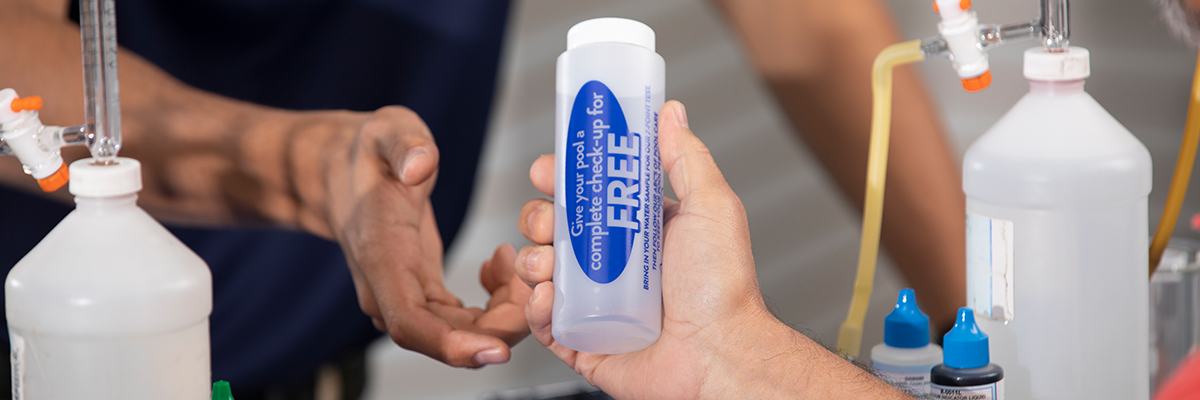We Offer Free Computerized Pool Water Tests

The Easiest Test You'll Ever Take!
How Often Should I Test My Water?
We recommend that you test your water weekly, especially in warmer months when the bather load is high. In winter we suggest every few weeks or so to keep your water from becoming too unbalanced. Even if you test your water at home, we recommend you bring a sample to Pinch A Penny every so often to ensure everything is matching up.
When Should I Test My Water?
You can test your water at any time, but you should do it at the same time each week to ensure consistency. In addition, if there is a heavy rain or storm, you should test your water afterward.
What's The Best Way To Get A Sample?
To ensure accurate results take your test from the deep end of the pool. Ensure that the pump has been running for at least an hour prior to taking your sample. Be sure to submerge the bottle to at least your elbow, as far into the pool as you can reach. Bring it to your store as quickly as possible after drawing your sample.
What We Test For
-
Chlorine Levels
If your chlorine level is too low you may get algae and bacteria growth. However, if it's too high you may get staining. Plus, you will be spending more money than necessary on chlorine.
-
pH
When your pH is low it means your pool water is too acidic. This can cause burning eyes and skin irritation, and, is corrosive to your pool finish and equipment. High pH can also cause skin and eye irritation, and causes your chemicals to be less effective.
-
Total Alkalinity
Low alkalinity can cause rapid deterioration of some types of pool surfaces and fittings or even lead to metal stains. High alkalinity can also cause stains and may lead to scale build-up, which can impact the efficiency of your pool equipment.
-
Stabilizer
Low stabilizer levels will cause your pool to use more chlorine than necessary which costs you money! High stabilizer levels can lead to stains or spot etching of your pool’s finish.
-
Calcium Hardness
When the calcium hardness is too low the water becomes corrosive, which may lead to staining and etching of your pool’s finish. It will also wear down and damage your equipment and metal fittings which may cause your pool equipment to run inefficiently.
-
Acid/Base Demand
This detailed test determines how much Suncoast pH Minus or Suncoast® pH Plus your pool needs when the pH is out of balance.
-
Total Dissolved Solids (TDS)
High TDS levels make it difficult for your pool chemicals to dissolve and do their job. This can lead to persistent issues with algae, cloudiness, and staining. Also, pool water with a high TDS level can taste salty.